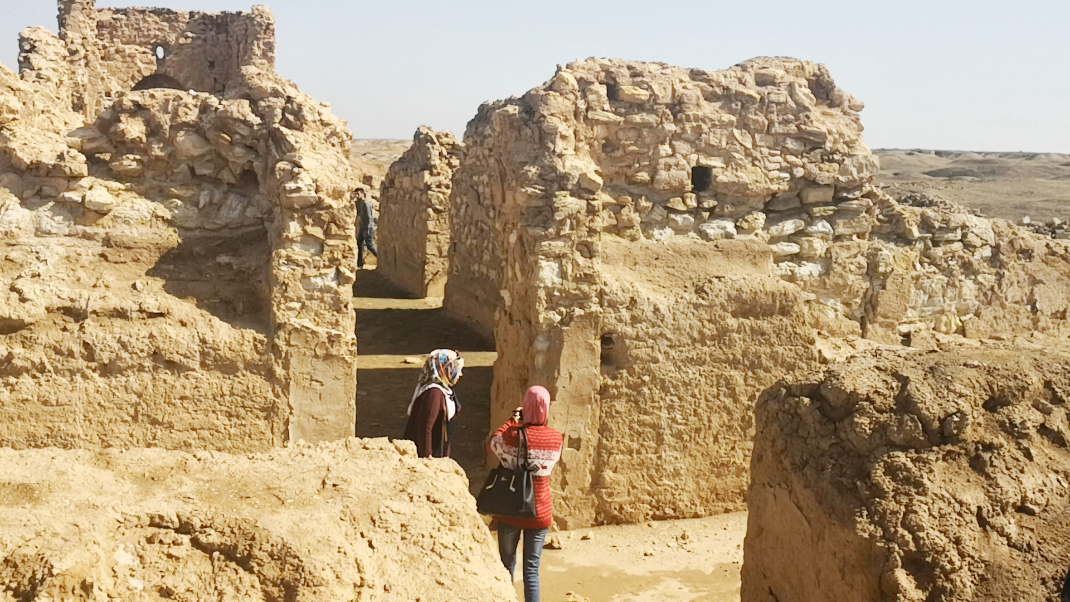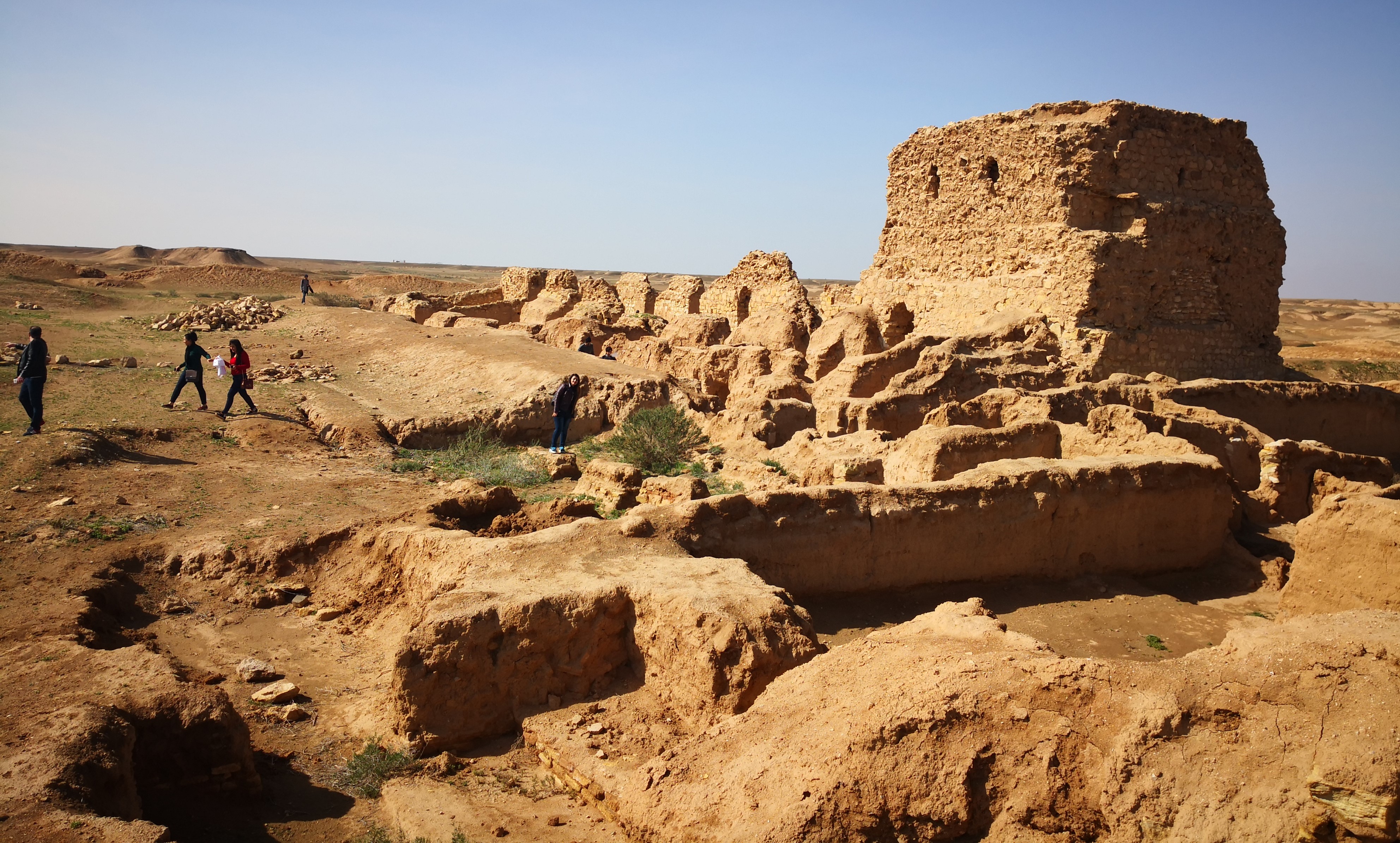Up today, there is no paved ordinary road that leads to Al-Aqisar, an archeological site in Ayn al-Tamr district, 70 km southwest of the Shiite holly city of Karbala in Iraq described as the oldest eastern Christian Church due to the inscriptions in Syriac language and the crosses found on its wall.
The church was apparently built in the fifth century and it was found in 1970s but it has not been completely exhumed, Iraqi authorities and Christian foundations said.
Few meters away, there are tombs of priests and bishops serving in the church then. The church is built with mud bricks alike a rectangular building, an entrance in the front with a corridor in the middle and rooms on the right and left and a yard at the end used for prayer with an Arch standing still in the middle.
A group of tourists and journalists tour the church ruins in march 2021. Video by Ahmed Musalaha.
The church was built in the fifth century, 120 years ahead of Islam, said Mohammed Amir from Karbala archeology office. No scripts or documents found about the builders but the crosses seen in the remnants prove it used to be a church, he added.
"School and graveyard were found and some buildings have not been exhumed yet," Amir added.
Though the church was found in 1976 but so far part of it has been excavated. "School and graveyard were found and some buildings have not been exhumed yet," Amir added.
The church resembles a small and cozy palace that is why it is called Aqisar, meaning a small palace in Arabic, compared to palaces of Shamoun and Akhidhar fortress, said archeologist Hussein Ali.
The church is built on the Babylonian and Summerian style of temples with the main gate facing the arch, Ali added.

A view of the remnants of Al-Aisar church in Karbala. Photo by Ahmed Musalaha.
Archeologists blame the authorities for carelessness toward archeological sites in general. "Most archeological sites are marginalized because exhumation and renovation requir real of will of the authorities," said Zakaria Sarsam, director of Burj babil, Babylon Tower, an NGO for protection of archeological sites.
"Most archeological sites are marginalized because exhumation and renovation requir real of will of the authorities," said Zakaria Sarsam
"We did our best to highlight ancient sites in the media and asked the related authorities for repair and renovation but bureaucracy and corruption are tough," she added.
Sarsam said Aqisar and other sites are historical landmarks of Iraq's civilization. "it is emotionally and historically vital since it is a witness of successive civilizations in Iraq. It can be turned into a source of income for the surrounding communities if it is invested in the proper way," Sarsam added.
There should be more focus in the media about archeological sites and to be introduced to the public and taught in curriculums, Sarsam said.





